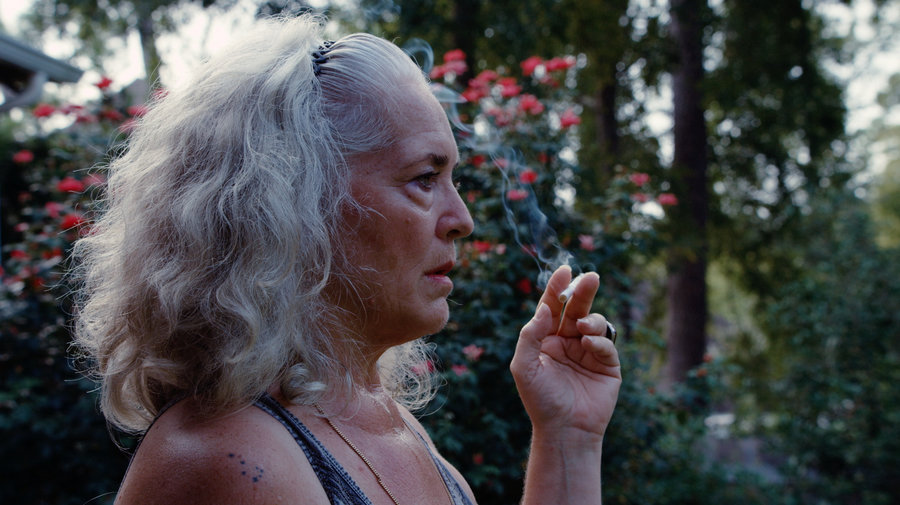The spirit of John Cassavettes informs the first great film of 2016, Trey Edward Schultz’s lacerating family drama Krisha, an acutely observed study of addiction and resentment and a showcase for his real-life aunt, character actress Krisha Fairchild, who tears into her first lead role with the intensity of the great Gena Rowlands in A Woman Under the Influence.
Made on Kickstarter funds and shot in the family home with relatives and friends over a fast nine-day production, this scrappy, pared down psychodrama follows a free spirited sixty-something black sheep as she returns home for a dreadful Thanksgiving reunion with the family that has long since written her off.
The extraordinary Fairchild, a long-time bit player with one of those lived-in, full-bodied, beaten by life yet larger than it faces, plays the titular character, a wayward sister and aunt who choose a different path than her middle class sister and family. After an extended bout with substance abuse and the much earlier abandoning of her young son (Shults) who now lives with her sister, Robin (Robyn Fairchild, Shults’ real-life mother), Krisha, hopped up on antidepressants but insisting she’s clean, descends upon a typically holiday of the usual shenanigans, here cooking, game watching and overall boisterous sensory overload.
While Krisha is welcomed with open arms, there’s a lingering tension underneath and on both sides, and though she seems to get on well with brother-in-law, Doyle (Bill Wise, cutting), she frequently retreats to the bathroom to pop a few pills and settle herself. In a series of painful scenes, she desperately tries to ingratiate herself to the clan but somehow still feels alone in a crowded room.
Her frustrations are amplified after an inability to make a connection with her alienated son, and after she’s left in charge to tend to the cooking and verbally dressed down by Doyle, she goes off the deep end. Adding to the drama is arrival of her dithering, elderly mother (Billie Fairchild), a wheelchair bound matron transported from the local nursing home and played by the family’s real-life matriarch, unaware that she was acting in a film during her few powerful scenes.
Moving in near real-time and subjectively observing Krisha’s frightening descent into drinking and pills leading to brutal scenes of family confrontations and truth telling, Krisha sidesteps melodrama and tropes of dysfunction in favor of a compassionate portrait of a broken woman who gives it her best, which isn’t good enough for anyone.
The final third of the film, in which Fairchild self-destructs, contain almost unbearably painful self-examination and it should be noted that Robyn Fairchild is nearly her equal in truth-telling scenes between the resentful adult sisters.
Shults, whose family suffered the loss of an extended member due to addiction, doesn’t pull punches in asking us to grant Krisha our empathy—she’s flawed, human and ultimately worthy of compassion, even when she’s off the rails in spite of herself in a marvelous dinner table confrontation.
Fairchild, who has been on the periphery of movies and television for her entire career as nephew Shults dreamed of seeing her play the lead, finally has a richly deserved one courtesy of her generous nephew. It’s a gift to us as well.
Unmissable.
4 stars.



